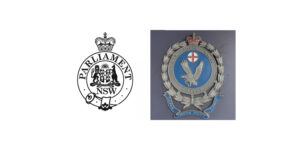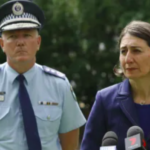Major NSW Parties Vote Down Law Against Sexual Predators in the Police Force

Released in June last year, The Broderick report found that women are currently underrepresented in leadership roles within the NSW Police Force, and high levels of sexism and sexual harassment within the organisation are hindering women being promoted to senior positions.
Commissioned by NSW police commissioner Mick Fuller, the report involved former Australian Sex Discrimination commissioner Elizabeth Broderick investigating the NSW police promotions system, with a particular focus on how it impacts opportunities for women to move ahead.
The report led NSW parliament to pass the Police Amendment (Promotions) Bill 2020 last week, which, as police minister David Elliott explained, replaces the old first cab of the rank system of filling job vacancies, with a modernised merit-based system of promoting non-executive officers.
However, a NSW Greens amendment to the bill that sought to uphold a key report principle – that “sexual misconduct reduces promotional opportunities” – was overwhelmingly voted down by the Liberals, the Nationals, Labor and of course, One Nation.
Preventing predator promotions
“If you read the conclusions of the Broderick report, it clearly shows an organisation that has systemic problems when it comes to sexual harassment,” said NSW Greens MLC David Shoebridge. “That’s having a very real impact on the ability of police who aren’t male to get promotions.”
“Taking on board that clear direction from the Broderick report,” he continued, “we put an amendment to the house, making it clear that if an officer had been found to have engaged in sexual harassment, then they would not be entitled to promotion.”
The Greens amendment would have added provisions to section 71 of the Police Act 1990 (NSW), ensuring the commissioner must not promote an officer who’s engaged in prior sexual harassment or misconduct, and that an inquiry to ascertain if this is the case be conducted before promotion.
“In keeping with the Broderick report, we saw this as dealing with the distressing data on sexual harassment,” the Greens justice spokesperson told Sydney Criminal Lawyers. “But, unfortunately, both Labor and the Coalition joined together to defeat it.”
The report findings
“Currently, women are underrepresented in all leadership roles, including sergeants, inspectors, superintendents and assistant commissioners,” the Broderick report states. “There is one woman at the level of deputy commissioner. To date there has not been a female commissioner of police.”
It then recommends that “leaders at all levels of the NSW Police Force should be involved with the police commissioner “in consistently and visibly committing to a zero-tolerance approach to sexism and sexual harassment.”
A survey conducted by the inquiry found that one in three women in the NSW Police Force has experienced sexual harassment from a colleague in the last five years. And 85 percent of officers of both sexes said they wouldn’t report such behaviour as it could hinder career advancement.
The survey findings further indicated that 70 percent of sexual harassment incidents were carried out by men. And 32 participants – 20 women and 12 male officers – indicated that they’d experienced actual or attempted rape or sexual assault in the past five years.
However, of the 38 members of the NSW upper house gathered in the chamber on 17 September, only Greens MLCs Abigail Boyd and Cate Faehrmann and Animal Justice MLC Emma Hurst joined Shoebridge in voting for an official prohibition on sexual predators advancing up police ranks.
Under the radar
The Greens amendment also sought to provide that an inquiry into an officer up for promotion be conducted to establish whether they’ve been the subject of civil misconduct or criminal proceedings, as well as whether any adverse findings were subsequently made against them.
“We wanted to give some teeth to some very general provisions about integrity checks that the police commissioner is required to do,” Shoebridge made clear. “We’ve had disturbing reports of some officers that have been repeatedly found to have breached people’s civil rights.”
The Greens MLC recently obtained figures that revealed over the year 2019/20, NSW police paid out over $24 million in taxpayers’ money to settle and defend police misconduct claims. And going back over a four year period, there have been around 300 civil cases brought against the force annually.
“There is no system within NSW police that captures that information and puts it before the police commissioner when questions of promotions are being held,” Shoebridge concluded.
“We had amendments to ensure that kind of information was directly before the commissioner when promotions were being considered, again, it’s unfortunate both the Coalition and the Labor opposition joined together to defeat the proposal.”







